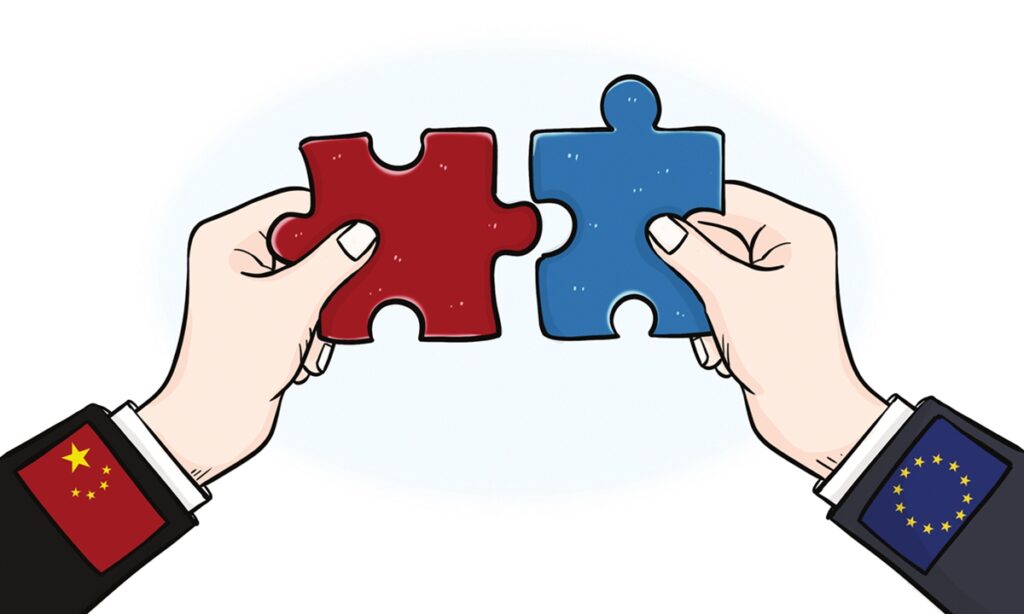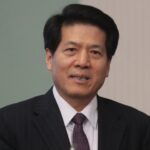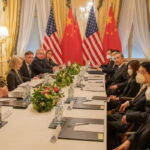Three high-level Chinese officials and diplomats are visiting Europe when EU foreign ministers meet on Friday in Stockholm to discuss a united approach to China.
Though difficulties in bilateral relations remain and the headwinds could last for a while, Chinese analysts pointed out that intensive interactions reflected China’s sincerity and hope this communication will encourage Europe to overcome external noises and form a more rational and pragmatic perception of China.
EU ministers have been urged to adhere to the 2019 designation of China as a partner, competitor and systemic rival, but “It is obvious,” an internal document stated, “that in recent years the rivalry aspect has become more important,” media reported.
The Taiwan question and Ukraine crisis, as well as values, economic and strategic security were given great consideration in the document.
Zhao Junjie, a research fellow at the Chinese Academy of Social Sciences’ Institute of European Studies, told the Global Times on Friday that the EU has a policy paradox – most of its members hope for deeper cooperation with China to gain substantial benefits, while eyeing the US for security safeguards.
According to the document, the EU “should not subscribe to an idea of a zero-sum game whereby there can only be one winner in a binary contest between the US and China,” Reuters reported.
As the EU strives to strike a balance, the emphasis on rivalry suggested the EU maintains a low level of political trust toward China, due to factors including US influence and the Taiwan DPP authority’s heightened secessionist operations with some EU politicians, Zhao said.
While French President Emmanuel Macron’s visit made waves following his call for EU strategic autonomy, voices supporting stronger China ties have become prominent.
At the juncture of the EU’s recalibration of its China approach, it is highly necessary and urgent to conduct high-level communication and dialogue, and increase its frequency to better dispel concerns and misunderstanding, Zhao said in response to three senior officials’ and diplomats’ overlapping European visits.
On core interests, China’s stance must be firmly stated and clearly delivered to avoid miscalculations or external disturbance, while on cooperation, China is conveying goodwill and injecting positivity.
China’s Vice President Han Zheng visited Portugal and the Netherlands from May 7 to 12 after attending the coronation ceremony of King Charles III of the United Kingdom on May 6.
In Portugal, Han noted the potential of bilateral investment, while the Portuguese side stated it refuses to view Portugal- and EU-China relations from a simplistic perspective and is willing to deepen bilateral cooperation and promote constructive EU-China cooperation. Portuguese Prime Minister António Costa reiterated that the country adheres to the one-China policy and One Country, Two Systems practice in Macao.
In Austria, Wang Yi, director of the Office of the Foreign Affairs Commission of the Communist Party of China (CPC) Central Committee, voiced China’s firm support for European integration, for the unity and growth of the EU, and for the EU to play a more important role in international affairs.
Chinese State Councilor and Foreign Minister Qin Gang, who also wrapped up his visits to Germany, France and Norway on Friday, made several important remarks on China-EU relations.
De-sinicization in the name of “de-risking” means decoupling from opportunities, cooperation, stability and development, Qin said in response to mounting calls for “de-risking” inside the EU.
He stated that the China-Europe relationship is not targeted at any third party, nor is it subjugated to or controlled by any third party.
(Global Times)




